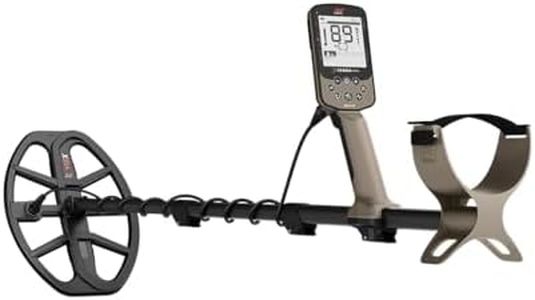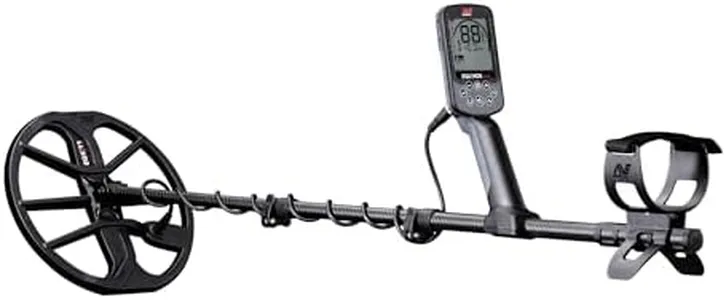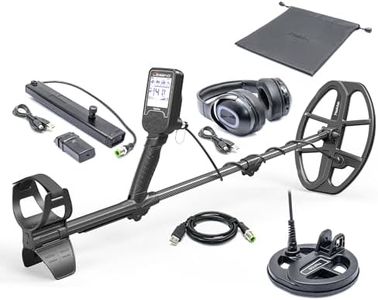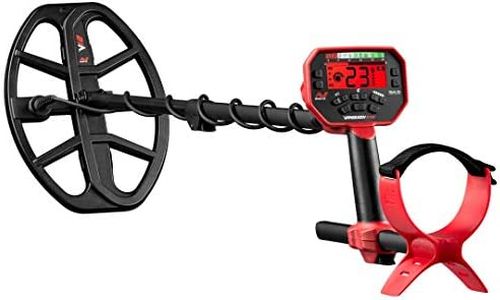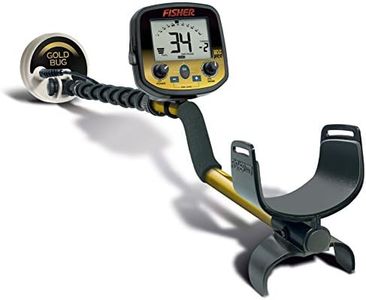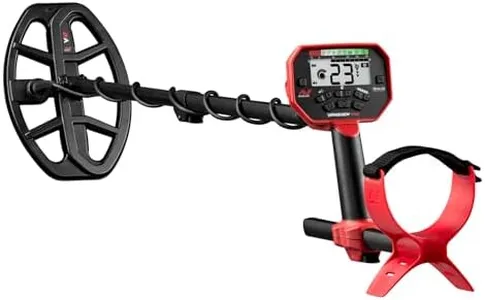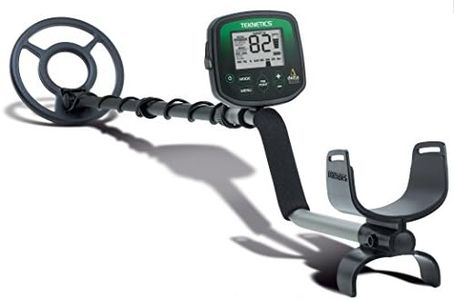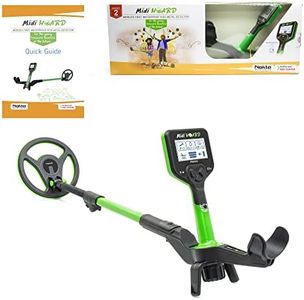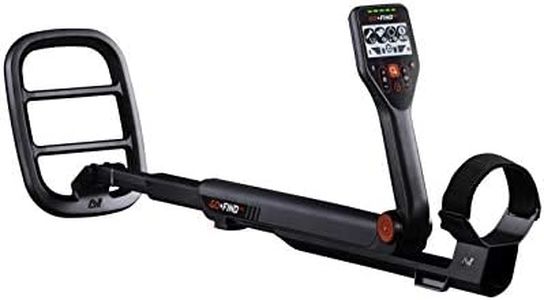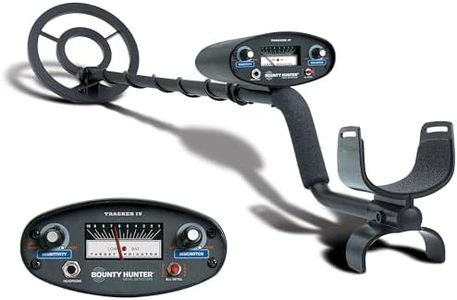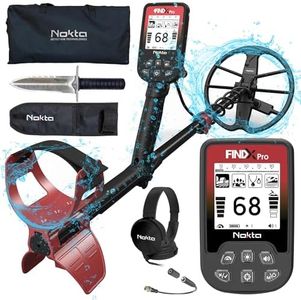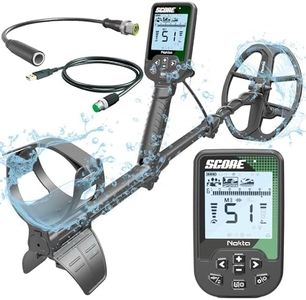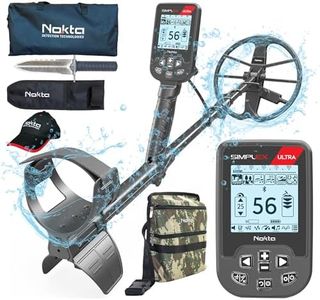We Use CookiesWe use cookies to enhance the security, performance,
functionality and for analytical and promotional activities. By continuing to browse this site you
are agreeing to our privacy policy
10 Best Beach Metal Detectors
From leading brands and best sellers available on the web.By clicking on a link to a third party's website, log data is shared with that third party.
Buying Guide for the Best Beach Metal Detectors
Choosing the right beach metal detector is all about matching the device’s capabilities to your specific needs, whether you’re searching along dry sand or venturing into shallow saltwater. To pick the best fit, it’s important to understand how each key specification influences ease of use, depth of detection, and adaptability to varied conditions like wet sand or mineralized environments. By familiarizing yourself with these specs, you’ll be well-prepared to select a detector that helps you find treasures while ensuring enjoyable, frustration-free outings.Operating FrequencyOperating frequency indicates how many times per second the detector sends an electromagnetic signal into the ground. Lower frequencies (3-7 kHz) tend to penetrate deeper and are better for larger, more conductive items such as coins; higher frequencies (10-20 kHz and up) are more sensitive to smaller objects like tiny jewelry but don’t reach as deep. For beach use, especially in areas with wet salt sand, having a frequency that balances depth and sensitivity helps avoid missing valuable targets. If you mainly hunt for coins and relics, a detector on the lower end works well, but if your focus is on small jewelry or gold, opt for higher frequencies. Some detectors offer multi-frequency operation, providing versatility across a range of targets and conditions.
WaterproofingWaterproofing is vital if you plan to detect in or near the surf, as it refers to how well the device (and its coil) can withstand water exposure. Some detectors are only waterproof at the coil, making them suitable only for shallow water or wet sand, while fully waterproof models can handle full submersion in water, ideal for shallow wading or even underwater detection. Consider where you'll be hunting most often—if you’ll stick to dry sand, minimal waterproofing is fine, but for surf and shallow water, a fully waterproof unit is necessary to protect your investment and expand your hunting terrain.
Ground BalanceGround balance is the detector’s ability to adjust its sensitivity to the mineral content of the soil, which is particularly important on beaches because wet sand and salt water can confuse less advanced detectors, leading to false signals. Automatic, manual, or tracking ground balance systems exist. Automatic is simpler for beginners and works well for typical beach hunting. Manual ground balance gives you more control in tough mineral conditions and is preferred by advanced users. If you hunt along varied areas (dry sand, wet sand, shallow surf), make sure the detector offers reliable ground balancing for all environments.
DiscriminationDiscrimination refers to a detector’s ability to distinguish between desirable metal targets and unwanted junk like bottle caps or nails. Beach environments often have a lot of trash, so having adjustable discrimination can save you time and energy. Basic models let you reject some unwanted items, while advanced ones allow for fine-tuning to specific metals. If you want to minimize digging up trash, look for a detector with sensitivity and discrimination controls, and adjust these depending on the amount and type of unwanted objects in the areas you hunt.
Weight and ErgonomicsWeight and ergonomics describe how comfortable and manageable the detector is during long beach searches. Metal detecting often involves extended periods of walking and sweeping, so a lighter detector with a well-balanced design and an adjustable handle will reduce fatigue and prevent strain. If you plan on extended hunts or have mobility concerns, prioritize comfort and adjustability, trying out different models to ensure they suit your stature and strength.
Battery LifeBattery life indicates how long the detector can operate on a full charge or set of batteries. Longer battery life means more time on the beach without interruptions, which is especially important if you plan to search remote or lengthy stretches. Some detectors use standard disposable batteries, while others have built-in rechargeable packs. Consider how often you’ll be detecting—if you make long outings far from power sources, opt for a model with a long battery life or the ability to easily swap batteries.
